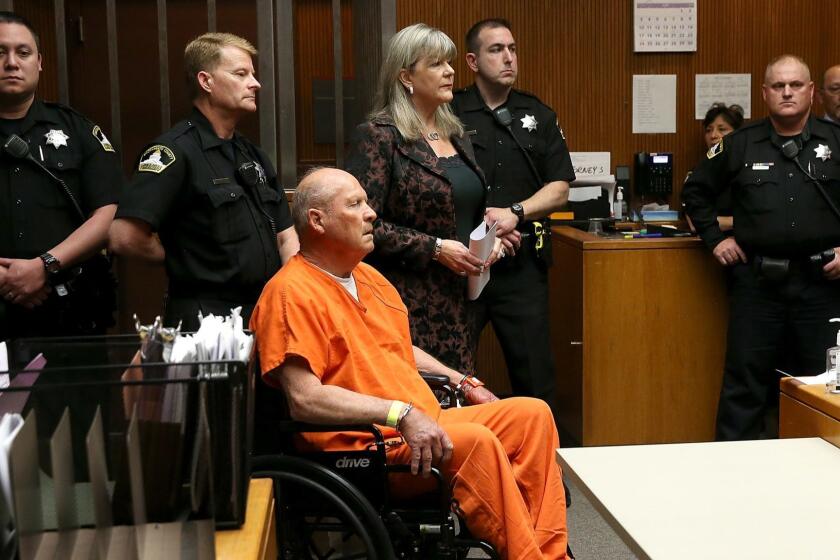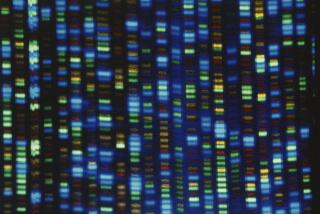DNA site used in Golden State Killer case is getting a new owner

- Share via
Verogen Inc. wants to make tools that have helped solve dozens of cold cases available to crime labs nationwide.
The closely-held, San Diego-based forensic-genomics company said this week that it has agreed to buy GEDmatch, a website where genealogy enthusiasts can upload raw DNA data to try to connect with relatives and fill out their family trees. Terms of the deal weren’t disclosed.
GEDmatch found itself at the center of a controversy over police access to private genetic information after investigators used its relative-finding tools to identify a suspect in the case of the Golden State Killer, a serial murderer who terrorized California in the 1970s and 1980s but eluded police.
The widely heralded breakthrough also led to concerns that people who had shared genetic information with GEDmatch could unwittingly have exposed themselves or their relatives to police searching for suspects in long-dormant investigations. The database’s sale to a commercial buyer will add another dimension to a complex debate over genetic privacy.
Verogen, which was spun off from Illumina Inc. in 2017, sells sequencing services to law enforcement. With the GEDmatch deal, Chief Executive Brett Williams said, the company plans to begin selling technology that will enable labs to create the same sort of basic genetic profiles that users can upload to GEDmatch from companies such as 23andMe Inc. Investigators could then comb through matches to try to find leads to suspects.
“Our business model is to place our instrument in all 300 crime labs in the U.S. to process these leads,” Williams said in an interview.
There was no match in the FBI’s national DNA database.
The deal underlines how a still-developing field has drawn interest from players looking to profit. FamilyTreeDNA and Parabon NanoLabs, which uses GEDmatch’s database to find matches, also offer forensic-genealogy services to law enforcement.
Some privacy advocates said the sale will add new urgency to questions about who can use the genetic information stored in such databases, and how.
“My big concern is that we have three for-profit companies controlling these databases with no ethical or regulatory oversight,” said Debbie Kennett, a genealogist and author, “so the only limitations on police power are the terms of service of the companies.”
GEDmatch, which was founded in 2010, initially allowed police to use its data only to investigate rapes and homicides. After it let Utah police use the database while investigating an assault, it received so much criticism that in June it changed its policy, making users’ data inaccessible to police unless those users opt in.
The change made the site nearly useless to law enforcement, slashing the number of profiles police could access from over a million to just 50,000. Verogen said Wednesday that some 200,000 users have opted in.
However, concerns about GEDmatch users’ privacy have deepened. The New York Times reported last month that a Florida judge had granted a warrant to search GEDmatch’s full database. And a team of researchers demonstrated how security flaws might allow a hacker to access highly personal genetic information.
Williams said increasing privacy protections would be a top priority for Verogen. The company said it would upgrade security and honor users’ previously selected opt-in preferences. The technology it sells to crime labs, Williams said, would also include far less revealing genomic data than profiles uploaded from companies such as 23andMe.
Williams said Verogen also plans to upgrade the website, which was started and run by two genealogy hobbyists in their spare time.
More to Read
Inside the business of entertainment
The Wide Shot brings you news, analysis and insights on everything from streaming wars to production — and what it all means for the future.
You may occasionally receive promotional content from the Los Angeles Times.











